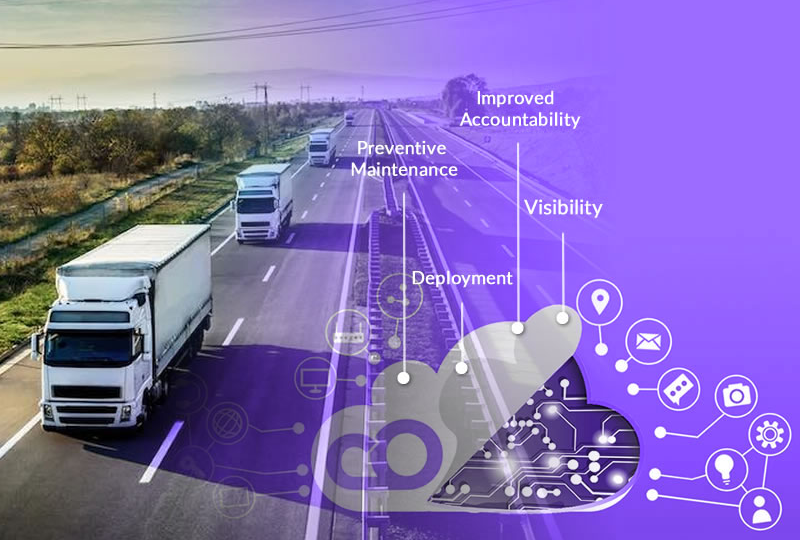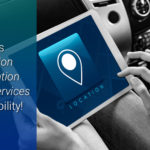As we write, the Internet of Things (IoT) is slowly but gradually picking up the pace. Today, IoT is being employed to resolve problems that are frequently encountered by companies. We are even seeing the technology being offered for multiple solutions across different industry sectors. A prime example of that is the use of “vehicle tracking apps” based on IoT. This is where reputed IoT platform companies and IoT service providers can be handy.
In the forthcoming sections of this write-up, we have thrown light on the different ways IoT can be highly useful in enhancing the vehicle tracking system. We promise after reading this piece of content; you will get valuable insights about IoT and the different ways it can add more value to the vehicle tracking solution.
There are lots of different technologies that are availing IoT development, including:
- Bluetooth low energy
- LTE advance
- Low energy wireless IP networks
- RFID
- Wi-Fi direct
- ZigBee
- Z-wave
One of the biggest problems faced by the logistics industry is tracking the fleet. With the help of Vehicle Tracking solutions using IoT devices, it is feasible to implement a Vehicle Tracking Solution (VTS). On top of this, it is also cost-effective.
IoT is employing three leading technologies in Vehicle Tracking System (VTS):
- Radio-Frequency Identification (RFID)
- Global Positioning System (GPS)
- On-board diagnostics (OBD II)
Let’s try to understand these in detail.
Radio-Frequency Identification (RFID)
It assists in controlling and tracking products.
Global Positioning System (GPS)
It gets real-time information about the routes.
On-Board Diagnostics (OBD II)
On-Board Diagnostics gets information about vehicle maintenance and driving conditions.
GPS has been around for a long time. It existed even before IoT devices came out. Everyone knows that GPS data transmitted to a host through a mobile data connection is enough to keep a check on the movement of the vehicle in real-time. On the other hand, IoT assists in making Vehicle Tracking Solutions more cost-effective, automated, reliable, and efficient.
Working Mechanism of IoT Based Fleet Tracking System
- Location data is collected by on-vehicle sensors encompassing OBD II, GPS sensors.
- The information from all sensors is transmitted periodically to the local gateway through a mobile data connection when the vehicle moves.
- The gateway sends this information to the network server where the information related to location, direction, speed, and other variables are collected and send to a secure application server in the cloud.
- The application server then sends reports and alerts the users whenever there is a movement on the driver or supervisor’s mobile.
Another name for IoT devices is connected devices that are regular household and commercial appliances and gadgets. The only exception with them being, it is possible for you to connect and control them over a network: the internet or a personal network.
One of the prime examples of that is the ease with which you can switch on the Air Conditioner with the help of your smartphone from anywhere. The only requirement is, it should be connected to the internet. However, that is only a small thing that can be achieved with the help of connected devices.
Now, imagine how effortless would it get to track things if it was possible to connect everything to the network. You can only visualize the kind of impact it will create in different industries. We are already seeing consumers enjoy the benefits of using connected devices in the modern era, while businesses are still wondering the best ways to employ this breakthrough technology to improve their bottom line.
We are already seeing tremendous growth in the IoT sector. As of 2015, there were 15 billion connected devices. This number is going to rise to 50 billion by the year 2020. If you calculate the percentage increase, it would be a staggering 33% since the year 2012 in the number of IoT devices. It is further forecasted that the logistics industry would be the greatest beneficiary of IoT.
Let’s now divert our attention to the benefits of IoT in fleet management.
- There are several new tools in IoT, including driver mobile apps, in-vehicle streaming cameras, etc. that assist in making the communication process smoother and quicker.
- IoT also assists in freight management, scheduling, chauffeur, effective routing, and truck tracking.
- IoT supports third-party APIs for park-assist, driving etiquette monitoring, traffic reporting, average speed, etc.
- The logistic companies can shift to the cloud for performing daily operations and track fleets anywhere, anytime, and on any device.
- By accumulating statistics from IoT devices, fleet management systems can derive valuable information about acts of lawbreaking by the driver, over-speeding, chauffeur behavior, etc.
- Thanks to IoT and GPS tracking systems, it is possible for the fleet managers to access crucial information like weather, traffic, and road conditions. This way, it is possible for them to deploy their vehicles and drivers in an optimized manner. \
- The businesses can ensure that all their vehicles are in excellent condition by setting alerts for wear & tear of the tire, maintenance, deviations in temperatures, and much more. It is even possible for you to run preventive maintenance with your vehicle management system to ensure that your fleet is in the best condition. You can also rest assured of the fact that there are no sudden expenses or incurring delays as a result of breakdowns.
- A fleet tracks lots of data like fuel consumption, speed, utilization of vehicles, distance traveled, etc. It is challenging to track all the data on a manual basis. It can even result in human errors. However, with the help of IoT and real-time GPS tracking software, it is possible to keep a check on all this information and scrutinize it to get the best possible results that enhance the efficiency of your fleet system.
- It is possible to automate different processes in fleet management with the help of IoT. With its help, companies can set up an automatic flow of the logistic processes as the interconnected devices. This way, it works as an integrated process.
These are some of the ways IoT can enhance vehicle tracking solutions.







